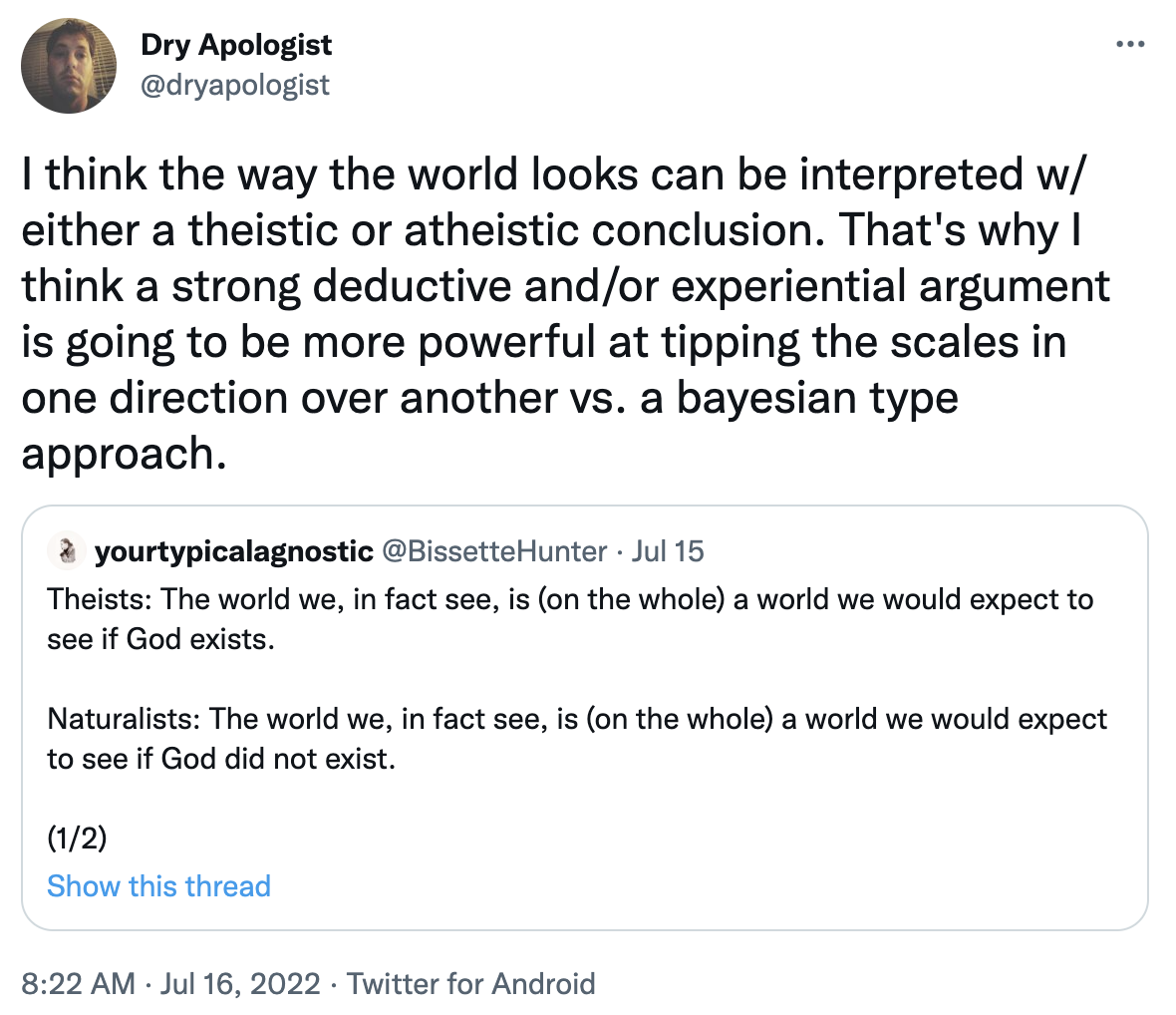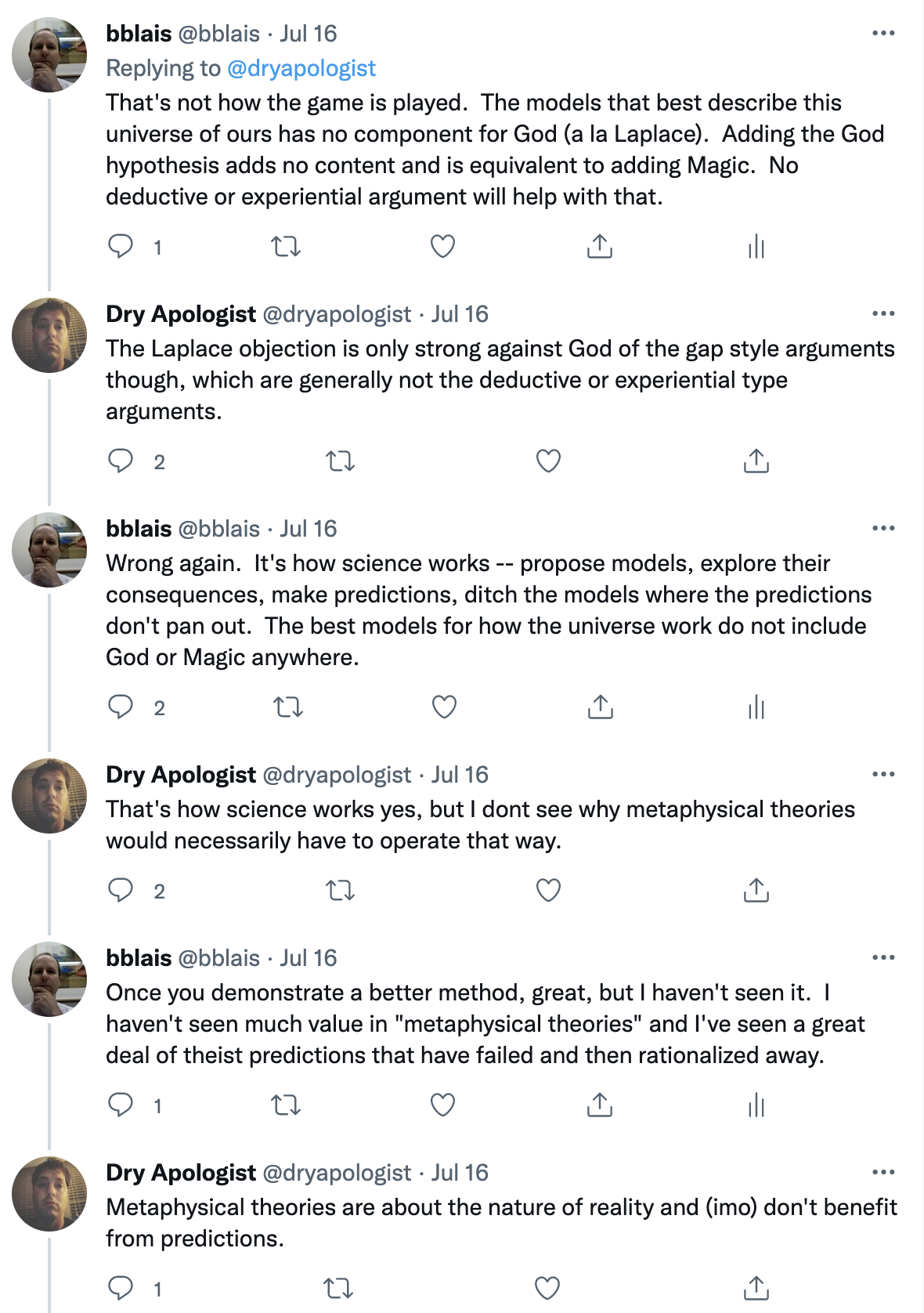
Gravitational Attraction
What would happen if two people out in space a few meters apart, abandoned by their spacecraft, decided to wait until gravity pulled them together? My initial thought was that …

So I recently had a bit of a discussion which ended somewhat abruptly with complaints of category errors on my part and implied scientism. The initial Tweet was:
https://twitter.com/dryapologist/status/1548281913873313792

To which I replied:

Then @MetaChristianity posted in seeming exasperation:

@MetaChristianity then references this blog post to point out my "category error". The post summarizes the difference between the "God" of the so-called "serious theists" and what I was apparently responding to.
In any serious discussion about theism, it is absolutely crucial to distinguish between God and the gods. If you don’t understand this distinction, you will literally never understand what serious theists are talking about.
God is, by definition, the Absolute. The one, absolute, unconditioned ground and source of all that is; the Alpha and the Omega, as Christian scripture puts it.
The term "source of all that is" comes up a lot in these descriptions, and I am baffled about several things.
So I come back to the idea that if this "source of all that is" has any discernible impact on our lives, then it is measurable and thus testable empirically. If not, then it has no use and is indistinguishable from nothing. The "serious theist" can state all they want that "the existence of God is not an empirical question" but all they are saying is that their claims are just empty words.